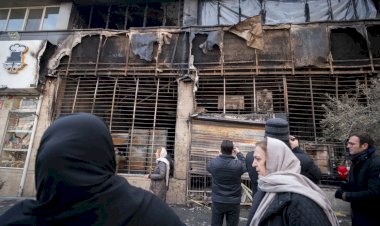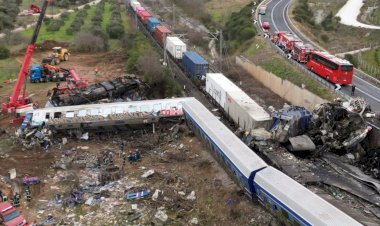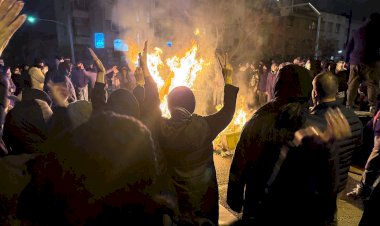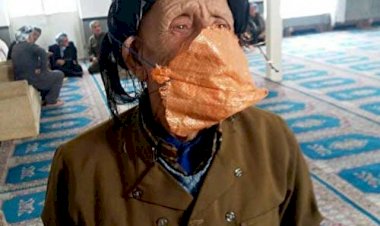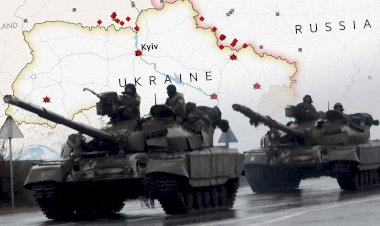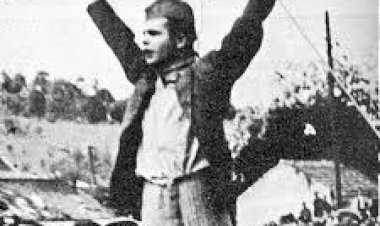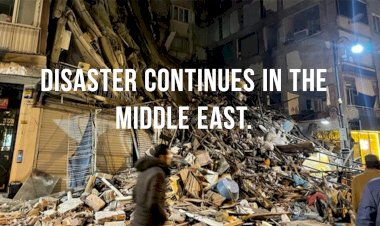An Assessment of Decisive Struggles- GÜNEŞ GÜMÜŞ
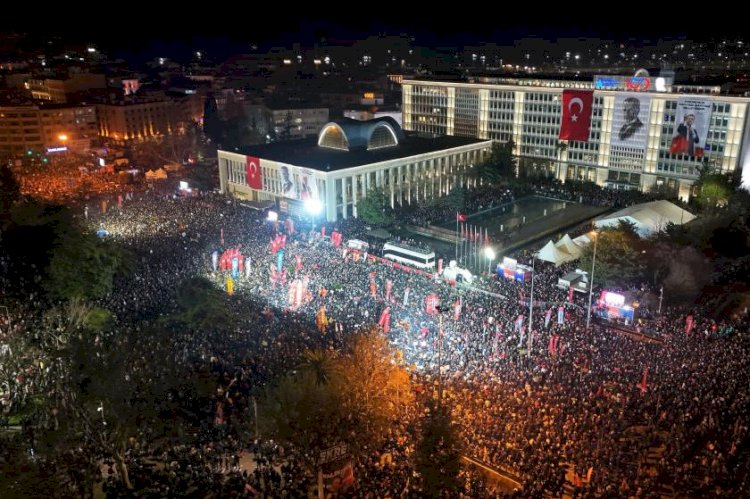
The AKP government is pursuing a qualitative leap in its steadily advancing authoritarian trajectory. The AKP can no longer tolerate elections. It does not want to face an active and assertive opposition—neither in the streets nor at the ballot box. For this reason, while suppressing de facto struggles on the one hand, it also aims to redesign opposition parties on the other. The crushing defeat they suffered in the 2024 local elections has almost entirely extinguished the AKP’s hope in the electoral process. Unwilling to accept defeat at the polls and a transfer of power, they opted for a coup against electoral procedures, especially now that international conditions are favorable. So much so that they even refrained from exploiting the growing and highly exploitable rift between İmamoğlu and Yavaş within the CHP.
At this point, what they seek is to eliminate citizens’ right to vote and be elected. The AKP believes the time has come for a Russian-style regime change. As in the Russian example, they want to establish a system in which elections appear to take place and so-called opposition parties exist, but any real and disruptive opposition is strictly forbidden. In such a system—where social opposition is crushed and critics must pay a heavy price—the ruling elite, along with a handful of oligarchs, plunder the country’s resources. It is abundantly clear that the destination AKP is steering the country toward is a hybrid model of Putin, Aliyev, and Golani.
Mass mobilizations of millions defending their democratic rights in the streets have served as a significant brake on the AKP's ambitions. The resistance, marked by hundreds of thousands and at times millions taking to the streets daily across nearly all provinces—especially in Istanbul, Ankara, and İzmir—has gone beyond defending İmamoğlu, İstanbul Mayor and the biggest opposition leader, and the Istanbul Metropolitan Municipality (İBB), turning into a broader struggle to protect fundamental rights. Yet, the pressing question remains: how long will this brake hold? It must be assumed with certainty that the AKP will persist in its efforts to crush and neutralize the opposition.
The Strengths and Shortcomings of the Mass Movement
At this point, it is necessary to discuss the character of the mass movement. Unlike the 2013 Gezi Uprising, this latest wave of mobilization was clearly marked by the presence of university students. The working class, on the other hand, has not yet reached the level of organization and radicalism needed to engage in a generalized political struggle. For now, working-class actions remain confined to local economic struggles. These protests should ideally pave the way toward a general strike, through which the working class could unleash its tremendous potential to defeat the AKP. However, it must be said that this expectation does not align with the current realities.
That said, student movements often provide the first signs of broader social radicalization. But it is also true that, in this recent upsurge, the intellectual tendencies within the student movement are still far from a labor-oriented, popular, and egalitarian radicalism. A significant segment of the student movement appears to be under the influence of secular nationalism, and this segment at times intersects with the CHP’s core base, which forms the majority of the broader mobilization. In contrast, socialist students are working to increase their influence by introducing clear demands, energetic interventions, and dynamic content. It should be noted that these efforts have seen partial success in certain universities.
However, as the mass movement grows broader in scale, the influence of socialists tends to diminish—largely due to their being specifically targeted by state repression. For the student movement to have a stronger impact on society, anti-AKP sentiment alone will not be enough. A youth movement grounded in equality, committed to the working people, internationalist, and libertarian in spirit has the potential to shape the country’s future. Such a movement, equipped with a revolutionary program for social transformation, would eventually break with the indecisive CHP leadership, which currently acts more as a hindrance than a help to the struggle.
The International Conjuncture
Across the world, the democratic façades of the imperialist capitalist system are crumbling. Developments in the United States—the leading power of global imperialism—continue to have worldwide repercussions. It would not be an exaggeration to say that the upcoming U.S. presidential elections have given the AKP the necessary momentum. As The Financial Times noted: “Ankara’s newly discovered importance for European defense, combined with the prospect of Trump’s return to the White House, may have emboldened Erdoğan to act against his main rival.” Trump has a well-known preference for working with dictators across the globe, and even in Europe, far-right and authoritarian tendencies are on the rise. Moreover, the EU—abandoned by the U.S.—is now preparing a defense cooperation agreement with Turkey. Monopoly capital in Europe is content with the AKP.
On the other hand, a new generation in the U.S. and Western Europe is quietly shifting toward socialism, and a major resistance to authoritarianism is brewing in these regions.
From an economic standpoint, one reality is immediately evident: Turkey does not have the vast oil and natural gas wealth needed to finance an authoritarian regime. The economic situation is bleak, forcing the AKP government to beg for funds from international finance capital. Yet international financial capital has no concern for democracy, human rights, or similar principles. They are perfectly content to exploit the labor of Turkish workers by extending high-interest loans to the AKP government.
Another critical dimension is the growing exodus of the skilled and educated population from the country. If authoritarianism becomes more entrenched, this migration will take on a mass character. Millions of young people resisting the AKP, especially in universities, will seek a future elsewhere. This would mean not only a loss for the opposition but also for Turkish capitalism, which risks losing an entire generation. The authoritarian straightjacket being forced onto Turkey will bring not only repression but also poverty.
Turkey’s Democratic Resistance: Youth and Mass Struggle
And yet, Turkey does not fit into the authoritarian mold being forced upon it. Millions of young people are fighting against the abolition of their right to vote and be elected. A generation that refuses to live under a tyrannical regime is resisting in the streets. As a result of this struggle, attempts to appoint government trustees to the Istanbul Municipality and the CHP have so far been postponed. However, it would be unrealistic to assume that the AKP has abandoned these plans entirely.
Indeed, it is clear that the Ankara Metropolitan Municipality and Mayor Mansur Yavaş are next in line after Istanbul. Investigations launched by the Ankara Governor’s Office into ABB show that the government does not intend to step back. As widespread protests continue, thousands are being detained, and socialists are being specifically targeted through home raids.
The Government’s Strategy: Repression, Fear, and Media Control
The escalation of police violence, increasing provocations, and widespread arrests are all aimed at generating fear and exhaustion among the masses. In the near future, the closure of opposition media outlets such as Halk TV, the main opposition TV channel, is also among the anticipated scenarios.
However, what will ultimately determine the outcome is the organized resistance of the people. The success of the mass struggle depends on sustained and determined organization. The radicalization and substance of the movement also rely on the strength of this organizational foundation. Spontaneous outbursts of anger without strategic depth are unlikely to have a lasting impact. For that reason, what will carry the struggle forward under all conditions is an organized and conscious popular movement. Developing such an organized resistance is, therefore, of critical importance.
Conclusion
The AKP’s authoritarian drive seeks to drag Turkey toward a model of “showcase democracy” similar to that of Russia. Yet Turkish society possesses the potential to resist this model. The dynamism of youth, the struggle of working people, and the united resistance of pro-democracy forces have the power to derail the government’s plans.
It must not be forgotten: Throughout history, authoritarian regimes have only been pushed back by organized social opposition. Turkey’s future depends on the determination and continuity of this struggle.




